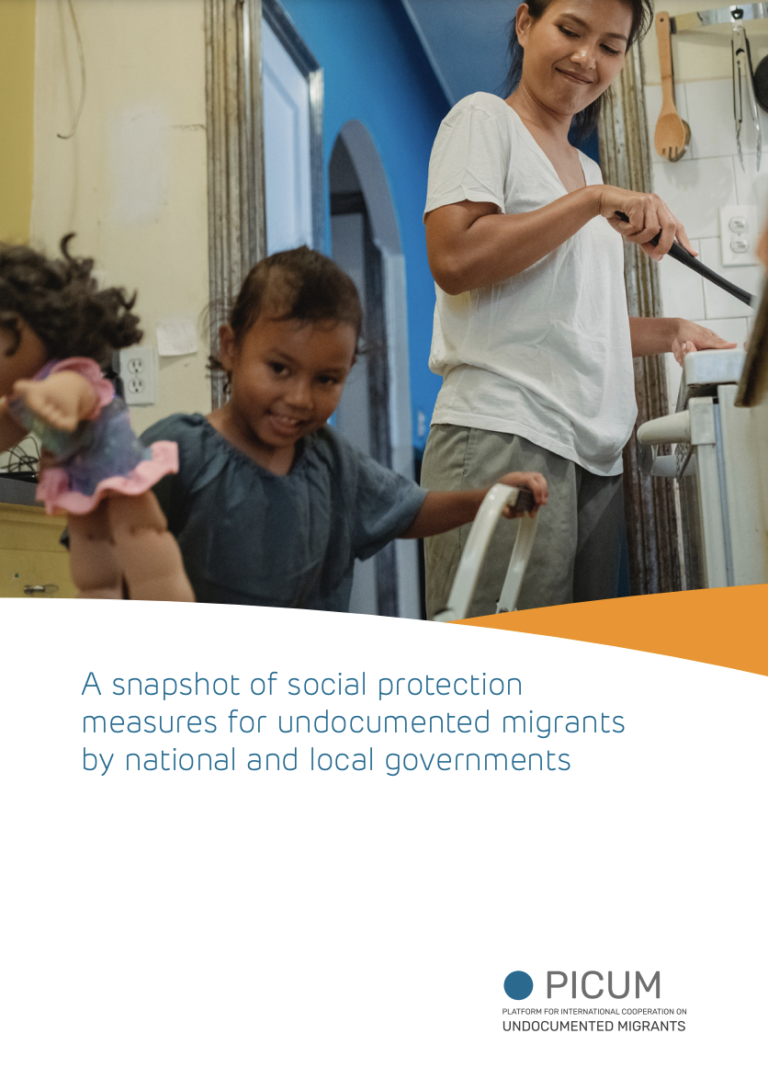Across Europe, people live and work while having irregular migration status, economically, socially and culturally enriching their communities and countries of residence. Undocumented migrants contribute directly and indirectly to social protection systems, as taxpayers, workers and informal carers. Undocumented workers are a key part of the domestic work and care workforce, caring for children, elderly and people with long-term social support and care needs, and enabling labour market participation and work-life balance.
Nonetheless, states severely restrict access to social protection for people with temporary, precarious or irregular residence status. Although undocumented migrants face various economic and social risks and vulnerabilities, they are excluded from many of the basic mechanisms of social protection put in place to address vulnerabilities and provide a minimum social safety net, including access to subsidised housing and income security.

